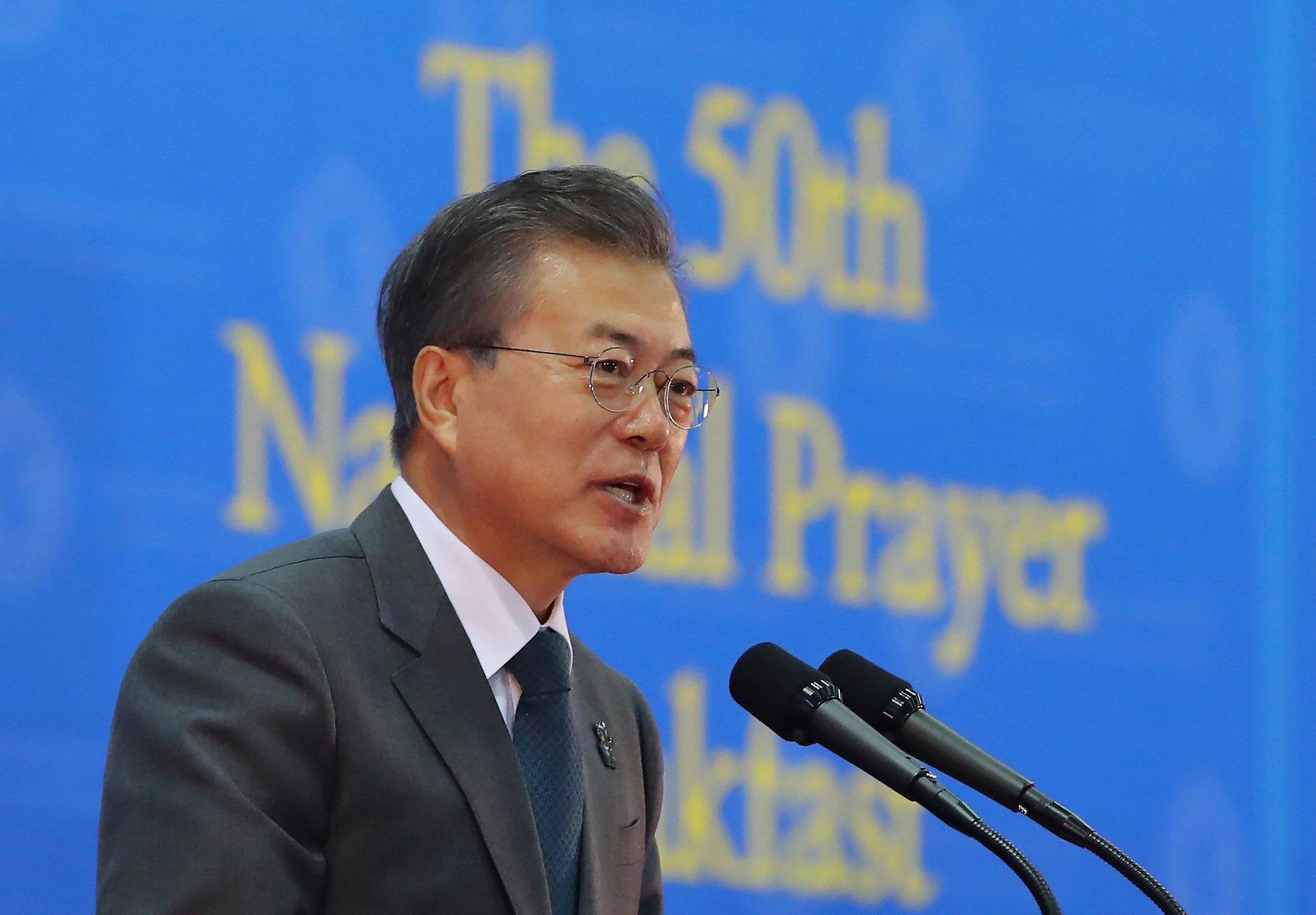
Analysts saw Mr. Abe’s language as suggesting that Japan fears that the North might define denuclearization differently from the rest of the world.
Why Nuclear Deals With North Korea Don’t Stick
Several times over the years, negotiations between the United States and North Korea have appeared successful. Each time, the agreement fell apart.
Photo by Doug Mills/The New York Times.
Watch in Times Video »
“I think there’s real concern about a deal-maker president talking one-on-one with Kim, accepting something less than” verifiable and irreversible denuclearization, said Tobias Harris, a Japan analyst at Teneo Intelligence, a political risk consultancy based in New York.
“The Japanese government obviously wants the North Korean threat resolved,” he added, “but I don’t think Japanese officials are naïve about the difficulty of achieving a truly meaningful disarmament agreement under these circumstances.”
In remarks released by the White House, an unnamed senior official said President Trump had spoken with Mr. Abe on Thursday night in Washington. The official added that the administration sought a verifiable deal for the permanent denuclearization of North Korea.
In Seoul, a spokeswoman for President Moon Jae-in described the invitation to talk as “another great breakthrough.”
President Trump’s acceptance of Mr. Kim’s invitation to a summit meeting clearly marked a diplomatic victory for Mr. Moon, adding momentum to the South Korean leader’s efforts to steer the nuclear crisis from talk of war toward negotiations.
But analysts quickly noted the risks for Washington and Seoul if Mr. Kim did not live up to American expectations for negotiations, or if South Korea pursued better relations with the North should Mr. Kim not take any steps toward denuclearization.
“Announcing intention for a U.S.-North Korea summit, with so many details yet undetermined, carries risks,” said Leif-Eric Easley, associate professor of international studies at Ewha Womans University in Seoul. “If the Trump-Kim meeting breaks down, both engagement and pressure campaigns could suffer.”

Credit
Hwang Kwang-Mo/Yonhap, via Associated Press
There was no immediate reaction from China’s Foreign Ministry, but some Chinese analysts were pleased with the news.
“The United States cannot resist North Korea’s proposals, and Trump is grabbing at them,” said Cheng Xiaohe, professor of international relations at Renmin University. “That’s good.”
Wendy R. Sherman, the lead negotiator for the Obama administration on the Iran nuclear deal, said China would be wary of a meeting between Mr. Kim and Mr. Trump even though Beijing wants dialogue between the two.
“North Korea is not about a rush to denuclearize,” she said. “They are about dominance, respect and the reunification of the peninsula on its own terms.”
“Does China want Kim to determine the future of Northeast Asia?” she asked. “China wants to define the future of Asia. The United States is a Pacific power and wants to protect and grow its place in Asia. However China doesn’t want North Korea as a nuclear state. The United States doesn’t want that. There maybe common ground there.”
Any talks could end up offering only a temporary reprieve, given the American readiness for military action.
“What is worth paying attention to is whether North Korea will state very clearly that they are willing to give up their nuclear weapons,” said Zhang Liangui, professor of international studies at the Central Party School of the Communist Party.

Credit
Toru Yamanaka/Agence France-Presse — Getty Images
“If North Korea tries to beat around the bush again this time,” Mr. Zhang added, “I think the U.S. is ready to resolve the problem with force.”
In Japan, where Mr. Abe has worked to maintain a close relationship with the American president, analysts said officials were keen to rein in Mr. Trump’s impulsive tendencies.
On the same day that Mr. Trump accepted Mr. Kim’s invitation, he announced tariffs on steel and aluminum imports, a move that Japan’s foreign minister, Taro Kono, described as “regrettable.”
During a budget hearing in parliament, Mr. Kono expressed skepticism about North Korea’s intentions.
“Anyone can say that one has the intention to denuclearize,” he said. “So far North Korea has done the same twice, to save time to develop nuclear weapons. So Japan’s stance is unchanged. It’s necessary for them to show concrete actions.”
Euan Graham, director of the international security program at the Lowy Institute in Sydney, Australia, said it was worrying that the North Koreans were dictating the pace of events.
“Kim Jong-un is playing this very well,” he said. “He’s got South Korea acting as his emissary, and now an unprecedented summit with the U.S. president, all on the basis of a vague and untested commitment to denuclearization.”
“My concern is the U.S. is being drawn into a negotiation prematurely, without the internal coherence required to hold the North Koreans to a meaningful bargain that doesn’t compromise U.S. interests, and those of its allies,” he added.
Continue reading the main story
Powered by WPeMatico

